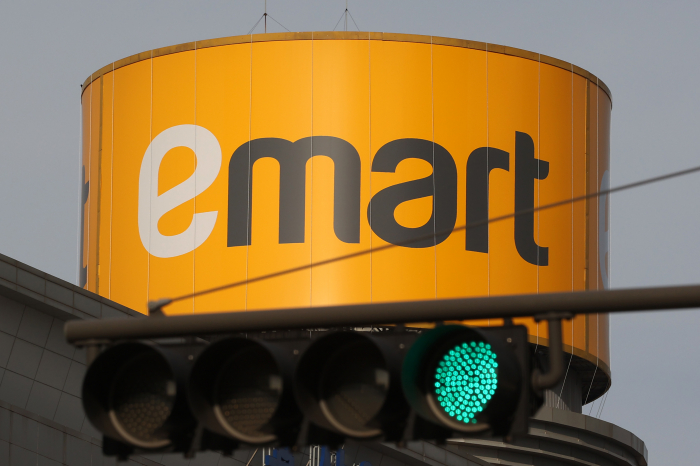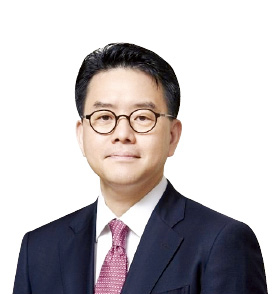E-Mart's conundrum over changing shopping habits
Its share price has slid 5.91% to an almost two-year low of 119,000 won, hit by a 72% plunge in Q1 earnings
By May 18, 2022 (Gmt+09:00)
LG Chem to sell water filter business to Glenwood PE for $692 million


Kyobo Life poised to buy Japan’s SBI Group-owned savings bank


KT&G eyes overseas M&A after rejecting activist fund's offer


StockX in merger talks with Naver’s online reseller Kream


Mirae Asset to be named Korea Post’s core real estate fund operator



For middle-class families in South Korea, it has become a morning ritual to bring the boxes of fresh produce and daily necessities delivered overnight into their house.
The items in the boxes vary from fresh vegetables from Oasis Corp. and sweet strawberries from Market Kurly Inc. to processed food and daily necessities from Coupang Corp.
The COVID-19 pandemic has completely changed consumers' shopping habits and the entire retail landscape. Before the onset of COVID-19, it used to be a household routine to drive to a large shopping mall and buy bundles of food staples at least once a week.
With the e-commerce boom showing no signs of receding, large shopping malls such as E-Mart Inc. are yielding to online rivals even for fresh produce.
EARNINGS SHOCK
Underscoring such trends, E-Mart’s first-quarter operating profit plunged 72% to 34.5 billion won ($27 million) from a year earlier on a consolidated basis, despite an 18.8% on-year increase to 7 trillion won in sales, according to its filing on May 12.
A senior official of the country’s No. 1 supermarket chain shrugged off the steep decline in quarterly earnings as one-off effects related to its series of acquisitions made over the past two years, including the amortization of intangible assets.
But investors did not seem to agree with the company, which has yet to create synergy from the buyouts of online platforms and has not utilized a number of properties occupied by its offline stores across the country.
Its share price slid 5.91% to close at an almost two-year low of 119,500 won on Wednesday, following a string of downward revisions by analysts on its target prices. It was the weakest closing level since August 31, 2020 when it finished at 118,000 won.
Since Kang Heui-seok took the reins of E-Mart in 2019, the key arm of the retail giant Shinsegae Group has aggressively bulked up through acquisitions to solidify its online channels.
Its acquisitions included Gmarket Global, formerly eBay Korea and W Concept, the country’s No. 1 women’s fashion platform. It has also increased its stake in Starbucks Korea to 67.5%.
Strengthening both online and offline channels had instilled optimism for the stock, sending it to its nearly two-year peak of 191,500 won in mid-January 2021.

STANDALONE BASIS
Excluding one-off effects from the acquisitions, E-Mart suffered a double-digit fall in profits even on a standalone basis during the first quarter of this year.
Its operating profit tumbled 18.9% on-year to 91.7 billion won in the January-March period, with sales edging up 0.5% to 4.2 trillion won. The company said the first-quarter results were due in large part to a high base.
Gmarket Global, the operator of the two leading online malls Gmarket and Auction, also turned to an operating loss of 19.4 trillion won during the same period, capping its 15 consecutive years of operating profits.
The gross merchandise value (GMV) at Gmarket Global decreased 14% on-year to 3.8 trillion won in the first quarter. By contrast, SSG saw a 23% on-year jump to 1.6 trillion won in GMV.
NO MERGER
E-Market has not yet combined both SSG.COM, its online platform and Gmarket Global in the face of opposition from SSG’s major investor Affinity Equity Partners.
Given that, skepticism arises as to why E-Mart had to pay as much as 3.4 trillion won to buy out Gmarket Global, which had held a 13% share of the domestic e-commerce market, in June 2021.
Market watchers said the acquisition price seemed to reflect a management premium of at least 800 billion won. Including the management premium, E-Mart plans to amortize a total of 1.6 trillion won in intangible assets related to Gmarket Global over a period of 10 years.
Analysts said E-Mart is now at a critical juncture for its share price to remain in a boxed range or to reverse its downward spiral.
Now all eyes are on Kang, the longest-serving CEO among retailers in South Korea, to see if he can overcome the challenges posed by changing shopping habits and drive back up its share price.
Write to Dong-Hui Park at donghuip@hankyung.com
Yeonhee Kim edited this article.
-
 RetailLotte to end dawn delivery service where Coupang, Kurly lead
RetailLotte to end dawn delivery service where Coupang, Kurly leadApr 13, 2022 (Gmt+09:00)
2 Min read -
 RetailShinsegae’s omnichannel strategy drives up share prices of key affiliates
RetailShinsegae’s omnichannel strategy drives up share prices of key affiliatesAug 17, 2021 (Gmt+09:00)
3 Min read -
 Mergers & AcquisitionsInvestors revalue E-Mart after owning two-thirds of Starbucks Korea
Mergers & AcquisitionsInvestors revalue E-Mart after owning two-thirds of Starbucks KoreaJul 29, 2021 (Gmt+09:00)
2 Min read


